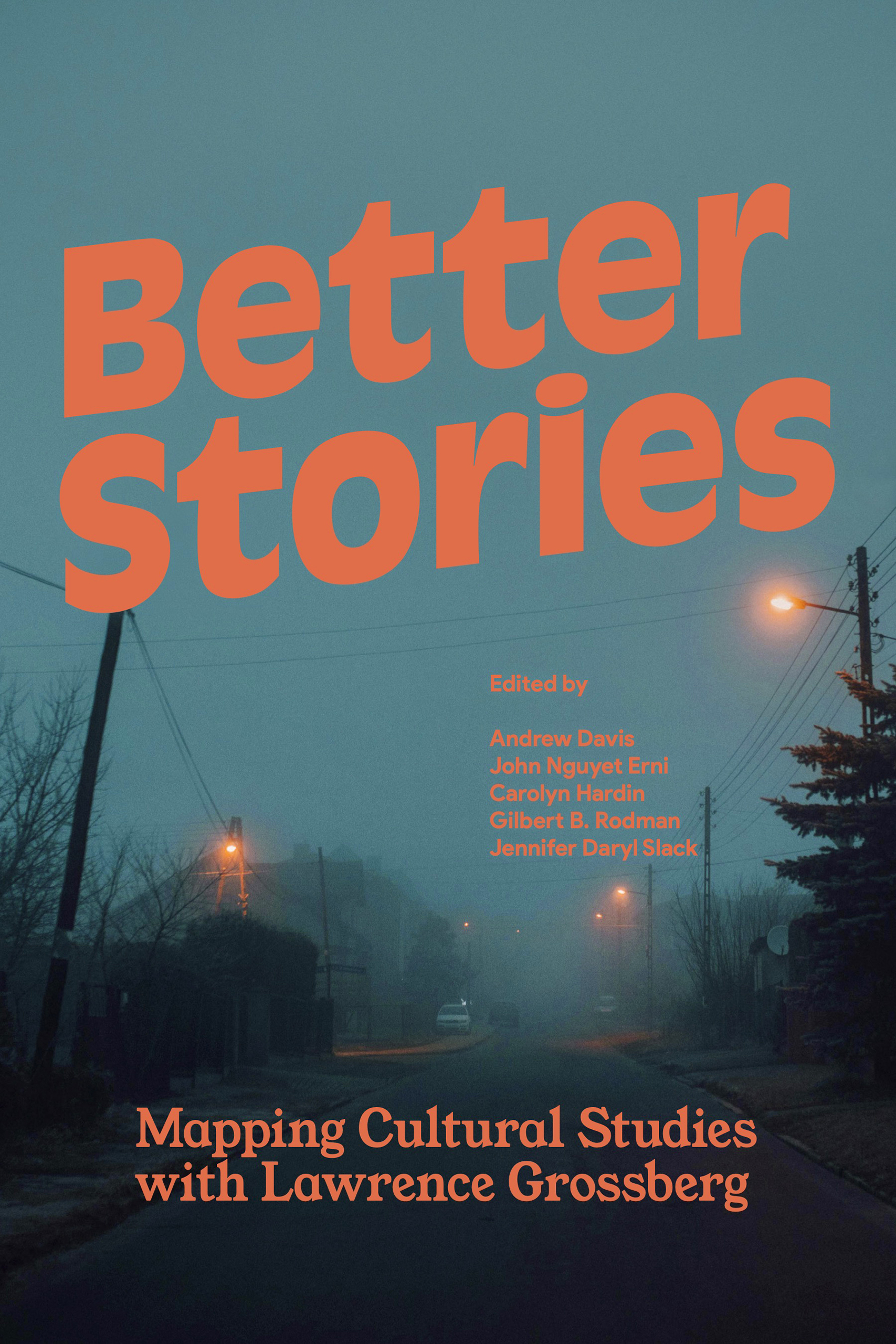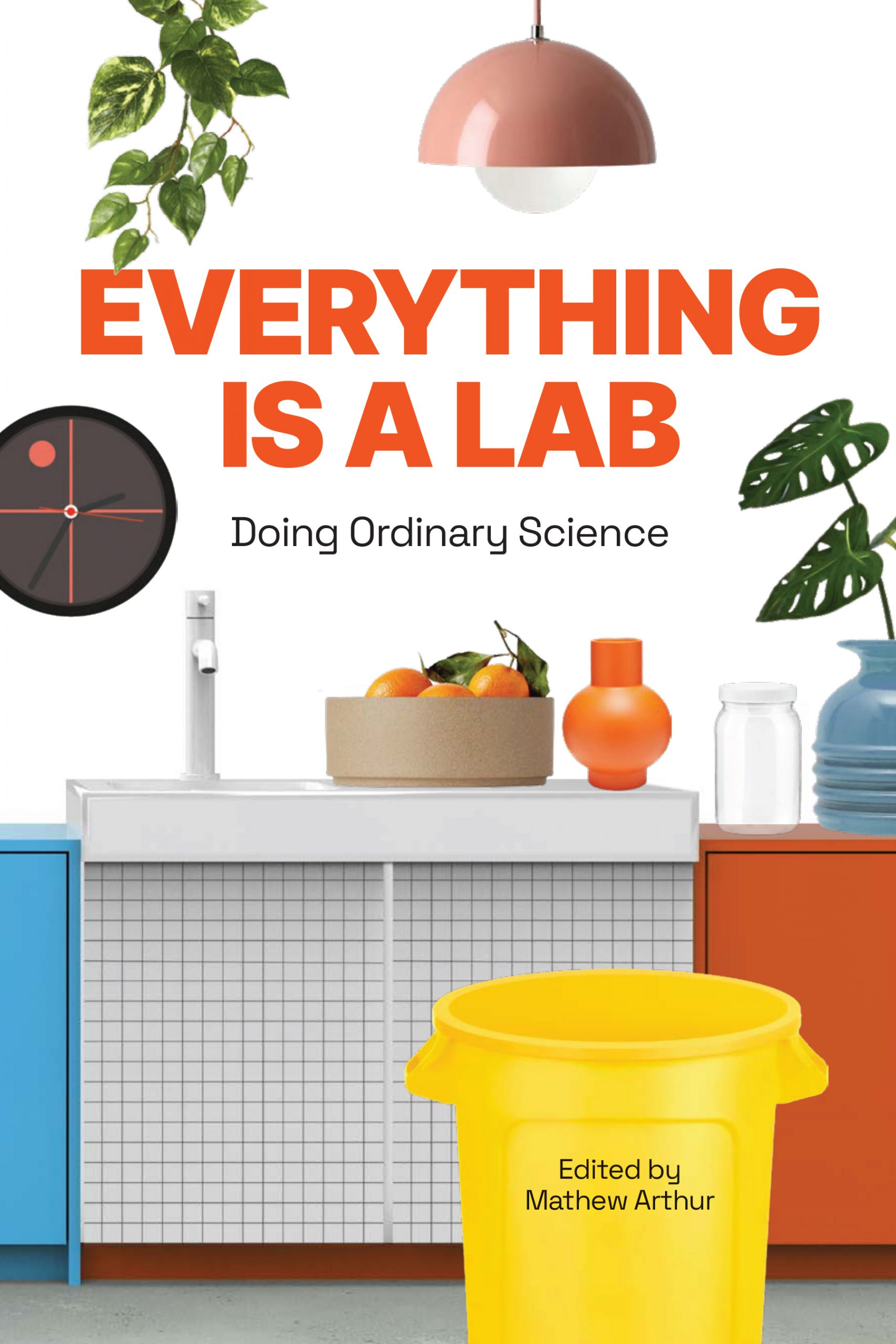
Better Stories: Mapping Cultural Studies with Lawrence Grossberg
Edited by Andrew Davis, John Nguyet Erni, Carolyn Hardin, Gilbert B. Rodman, and Jennifer Daryl Slack
Better Stories assembles essays and provocations in honor of Lawrence Grossberg’s radically contextual and affectively attuned lifework. In over fifty chapters, contributors trace mattering maps of influence, friendship, and intellectual struggle charged with the hope that thinking together—with feeling—can change the world. These essays not only comment on Grossberg’s ideas and many published works but also engage, expand, confront, and reshape them. Here, cultural studies is not a settled field but an unruly and ongoing conversation: an affective and political project sustained through convivial agonism, where asking “so what?” sparks new thinking and even better stories.



